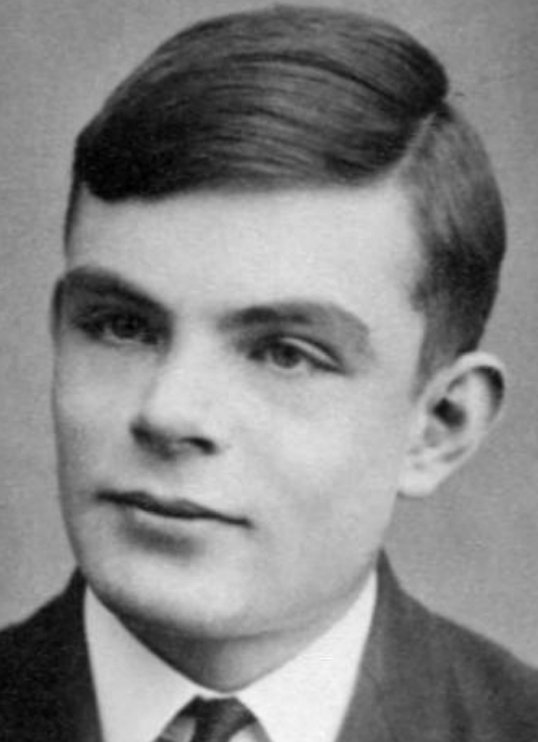On this date in 1912, Alan Turing was born in London, England. He graduated from Cambridge with a degree in mathematics in 1934 and earned a Ph.D. in mathematical logic from Princeton University in 1938. Turing was a mathematician, cryptanalyst and computer scientist who studied cognitive science and artificial intelligence, among other fields. He was especially influential in the field of computer science.
In 1939, Turing began working for the Government Code and Cypher School (GCCS), which successfully broke the complex code used by the German military to encode their radio communications. This feat was accomplished thanks to Turing’s help designing a revolutionary code-breaking machine called the bombe, which was essential to the Allies throughout World War II. The bombe allowed the GCCS to decode up to 84,000 German messages per month.
Turing is also known for the creation of the Turing Test, a reliable method of testing artificial intelligence, and for proposing the Turing Machine, a multi-purpose thought-experiment computer that would function similarly to modern computers.
In 1952, Turing was convicted of homosexuality and denied further access to the GCCS. Turing chose chemical castration over jail time as his sentence. In 1954 he died of cyanide poisoning in what was determined to be suicide by the authorities. Only a few years later, in 1956, the 1885 Criminal Law Amendment Act under which Turing had been convicted was repealed.
Turing lost his faith as a young adult and became a materialist after a classmate whom he loved died of tuberculosis. Turing’s work with artificial intelligence also influenced his freethought views. “God has given an immortal soul to every man and woman, but not to any other animal or machine. Hence no animal or machine can think. I am unable to accept any part of this,” he wrote in “Computing Machinery and Intelligence” in 1950. (D. 1954)
PHOTO: Turing passport photo at age 16.


